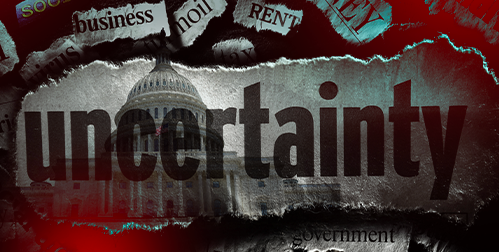Global Recession Predicted by World Bank
Central banks around the world are raising interest rates at the same time to fight inflation. A recent World Bank study says this will lead to a global recession in 2023. It will also cause financial crises in developing economies. These crises will result in lasting harm.
Global banks haven’t raised interest rates simultaneously like this in the past 50 years. Ninety central banks have already raised interest rates this year. Many did so more than once. This tightening is unprecedented. Bank of America’s Chief Economist called it “a competition to see who can hike faster.”1
The current quarter will see the biggest rate hikes by major central banks since 1980. This week alone, the Fed is set to lift its key rate by 75 basis points for the third time. JP Morgan Chase says it won’t stop there. Global interest rates are expected to double from their 2021 levels.
Aggressive interest rate hikes will slam the brakes on growth. To hit the Fed’s 2% inflation goal, the US would experience a deep recession and a loss of 3 million more jobs. And that’s just for the United States. The World Bank report said rate hikes, combined with current market stress, would cause global GDP to slow to .5 percent in 2023. That would meet the technical definition of a global recession. 2
“Global growth is slowing sharply, with further slowing likely as more countries fall into recession. My deep concern is that these trends will persist, with long-lasting consequences that are devastating for people in emerging market and developing economies,” said World Bank Group President David Malpass.3
Central banks are reacting to history. They are looking at the stagflation of the 70s and the global recession of 1982. These are examples of what happens if you stop raising rates before inflation is under control. Thus, taming inflation is their number one priority. Measures to relieve the threat of recession are being set aside. Banks don’t want anything to hamper their inflation fight. As a result, the risks of a steep recession are being amplified by all the banks raising their rates at the same time.
But history is also flashing global recession warning signs. The global economy is having the most drastic slowdown after a post-recession recovery since 1970. Global consumer confidence is taking a steep decline. And the world’s three largest economies – the US, China, and the euro area – have all slowed sharply.
Analysts worry central banks will overtighten their economies. One reason for this is that monetary policy works with a lag. First, it weakens financial markets. Then, it hits the economy, before finally affecting inflation. Banks are making huge new rate increases without knowing the full effect of the old ones. “It takes time to cool off inflation,” says BofA’s Chief Economist. “If you start talking about only focusing on current inflation as your main indicator, you’re going to be late in stopping the tightening cycle.”4
FedEx delivers Global Recession Warning
FedEx experienced its biggest one day drop in its history on Friday. It plunged 21%. FedEx warned of global recession as the worldwide slowdown caused them to miss revenue targets. The CEO of FedEx said this does not portend well for the global economy. The warning sparked a broad sell off in US Stocks. 5
The World Bank study said global rate hikes alone won’t be enough to stop inflation. Inflation is being fueled by rising energy costs, lingering supply chain issues and global conflicts. None of which central banks have any control over. Stocks and the dollar weakened after the World Bank’s global recession warning. Gold, however, went up as investors look to traditional safe haven assets. If you are interested in protecting your wealth during a potential worldwide downturn, contact us about a Gold IRA. It can preserve your assets, even in a global recession.







